Can the "everything rally" keep going?
It's a known fact that markets are forward-looking beasts, but even the price action of the last month has stumped many seasoned investors. Yes, inflation is coming down with the recent local inflation indicator showing a 3.4% print for a third consecutive month.
But it's also true that the jobs market (both here and overseas) is still extremely tight, economic growth (in most parts of the world) is sluggish, and Australian consumer confidence is shaky at best.
And yet, markets seem to be disregarding these headwinds. The S&P 500 is up 3.5% over the past month and 10% year-to-date. The gap between the US 10-year yield and the US 2-year yield, a once reliable recession indicator, is closing in quickly. And everything from gold to Bitcoin is hitting all-time highs.
And it's all predicated on the hopes that rate cuts come at the time that markets are expecting.
So is this an "everything rally" - and will investors who bought the narrative be left holding the bag? In this brand new episode of Livewire's top-down investing show Signal or Noise, we'll aim to distil the noise and make sense of where the best investment opportunities live. Joining myself and our permanent panellist, AMP Deputy Chief Economist Diana Mousina are:
- Lukasz de Pourbaix, Global Cross-Asset Specialist at Fidelity International
- Tom Nash, Fixed Income Portfolio Manager at UBS Asset Management
Note: This episode was taped on Wednesday 27 March 2024. You can watch the show, listen to our podcast, or read the edited summary below.
EDITED SUMMARY
Topic 1: Are central banks starting to splinter?
Diana - SIGNAL - Central banks are beginning to de-correlate, responding to what is going on in their own economies (evidenced by the unique situation in Japan). But what is clear is that most major central banks in the West don't feel a need to cut rates so soon given economic growth is still holding up.
Diana's Chart: The Fed no longer leads the world
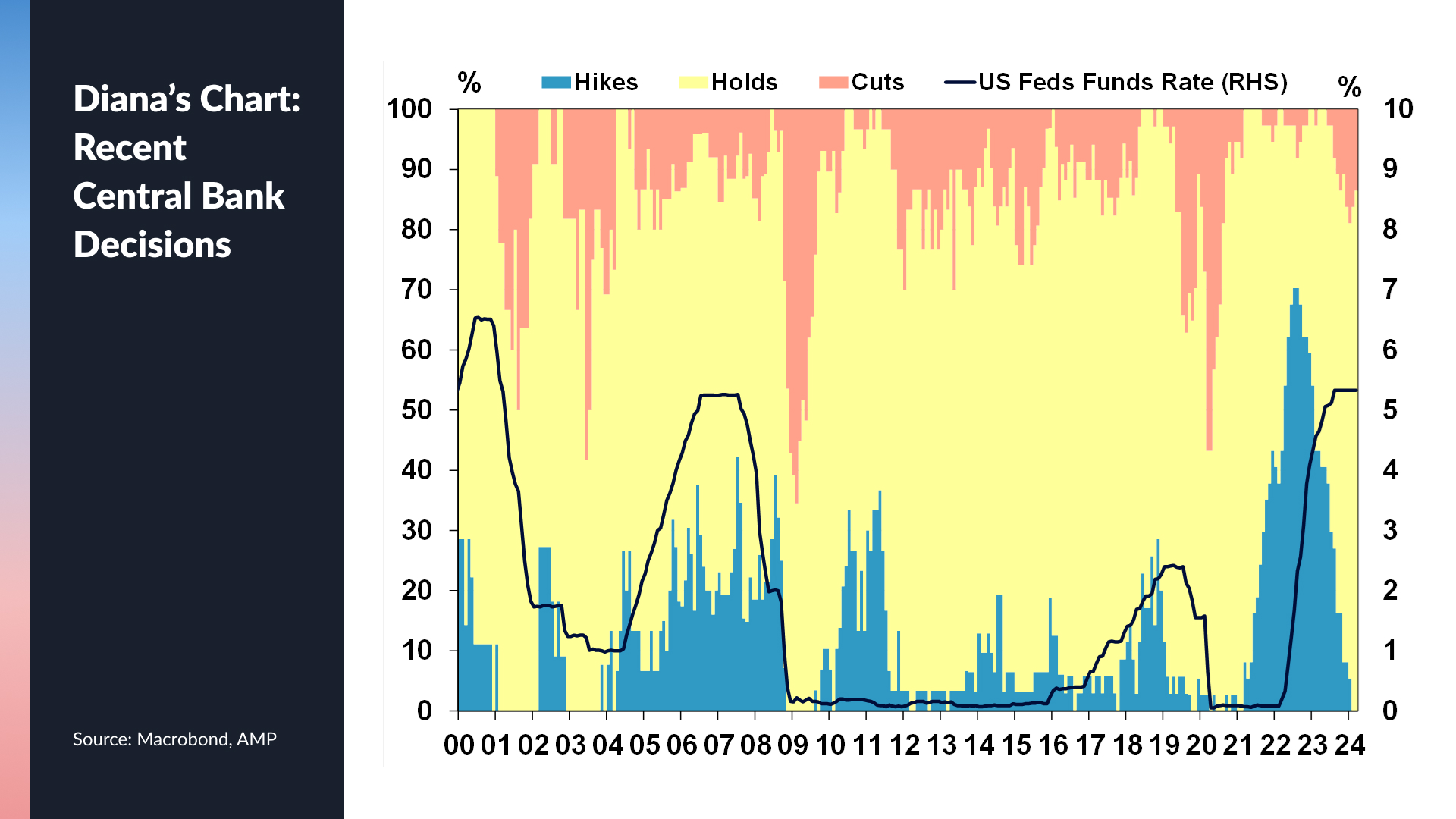
Lukasz - NOISE - Different economies are at different stages of the economic cycle - with China joining Japan in having unique economic situations.
Lukasz's Chart: US jobs market tightness
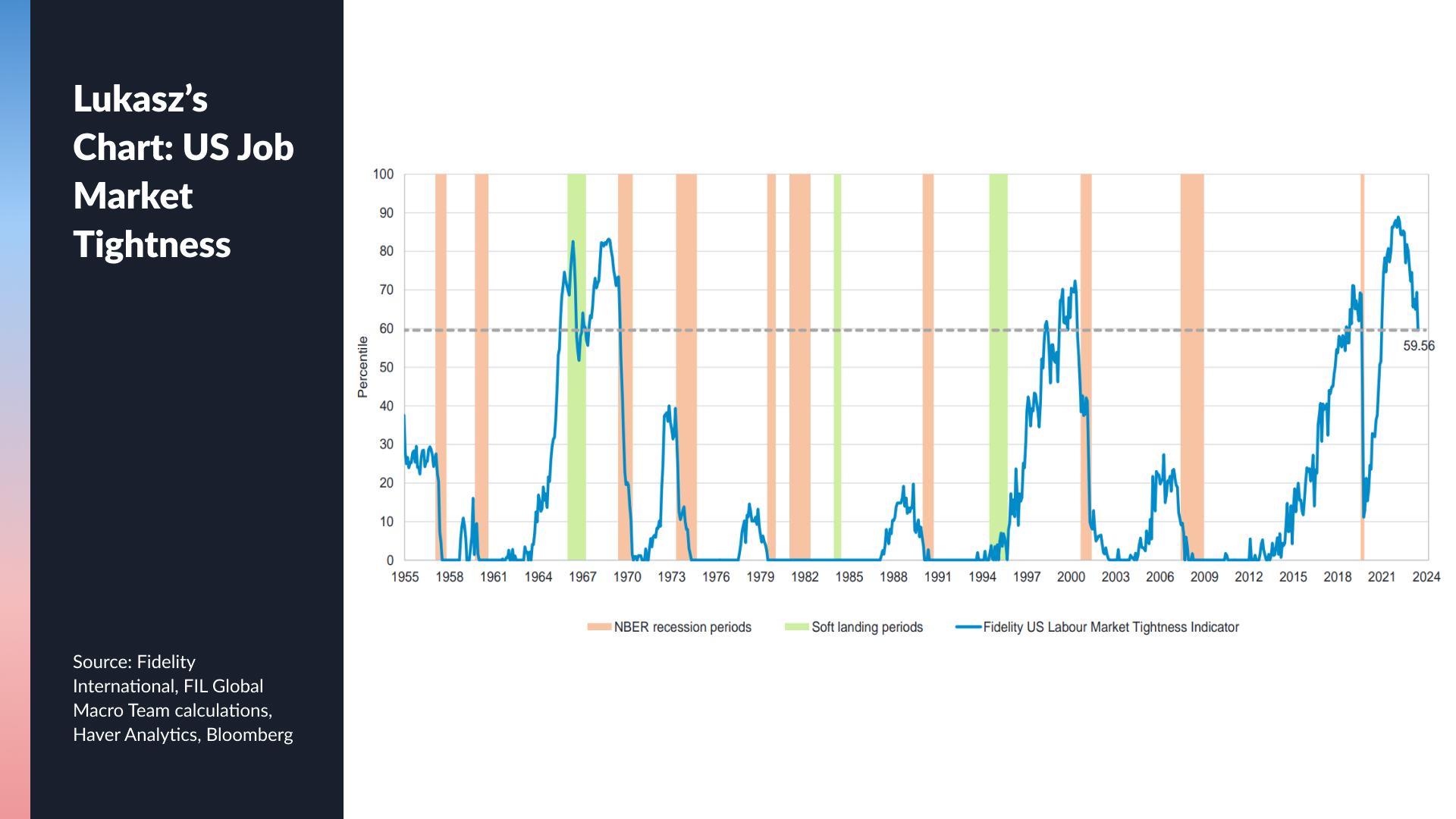
Tom - NOISE - The key message from UBS' team is that the global rates cycle has turned and the world is transitioning to a period of lower inflation, slower growth, and changing policy settings. The turn of the cycle, in Tom's view, typically signifies a peak in the amount of noise being discussed in markets.
Discussion: Will the RBA be slow to hike and slow to cut?
Tom - With a comparison to the Tour De France, Tom argues that no one central bank wants to "stick their neck out" and be the first to cut. He thinks that Australia sits closer to the back of the pack, but thinks the rates market is underpricing the chance of more RBA cuts.
Tom's Chart: Who's cutting when?
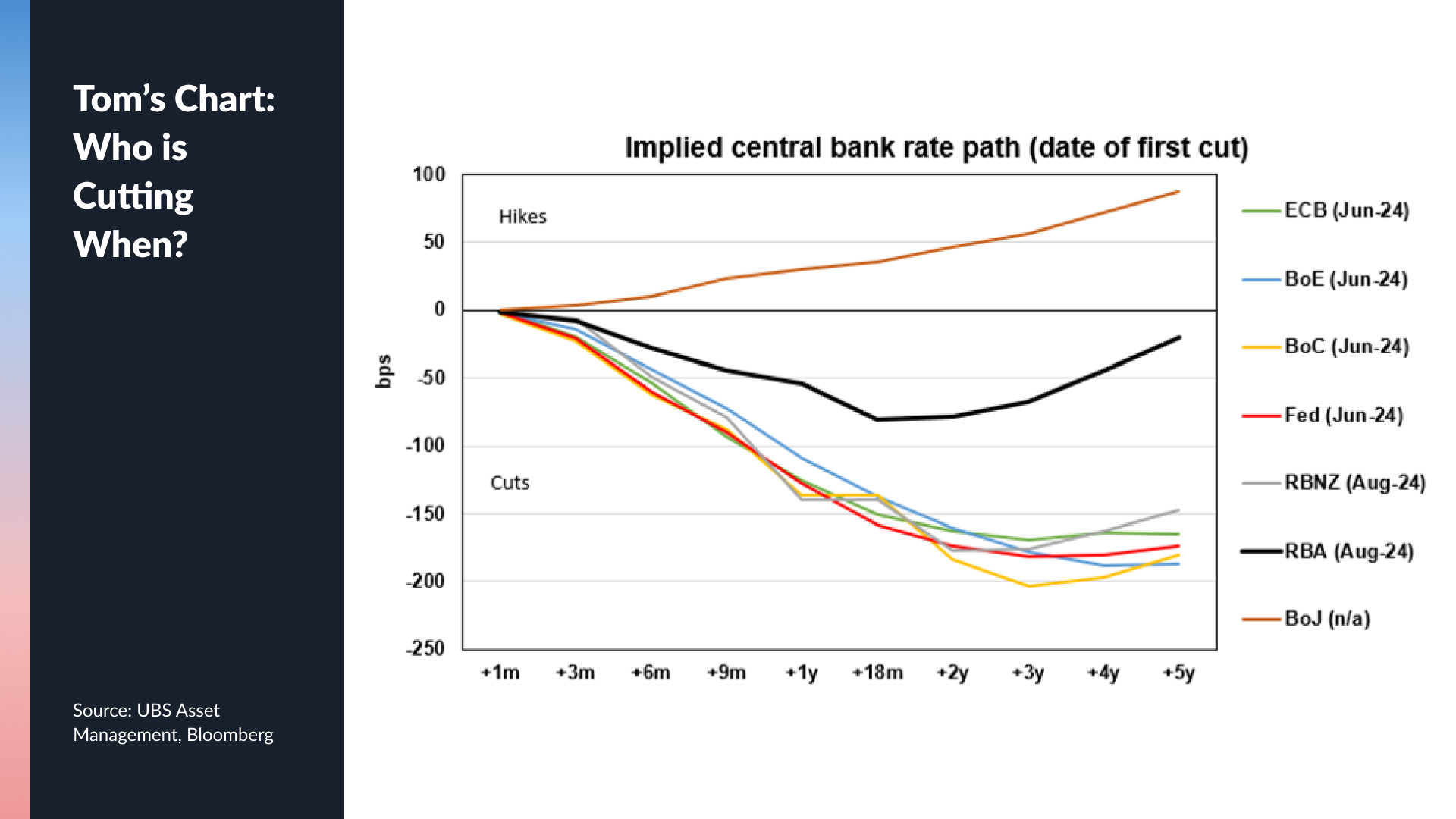
Diana - Historically, the RBA has lagged behind its global counterparts anyway on both the way up and down. Diana argues that the RBA may be reluctant to cut but that it may not have a choice if the growth environment deteriorates too quickly.
Lukasz - People are waiting, to a degree, for what the Federal Reserve does. While the RBA was late to hike, it's also arguable that the inflation environment was more sanguine at the beginning - and that rate hikes have had a more dramatic impact here than it has in other places. He thinks the RBA will not be far behind the Federal Reserve.
Topic 2: Are loosening financial conditions a signal for investors to take note of?
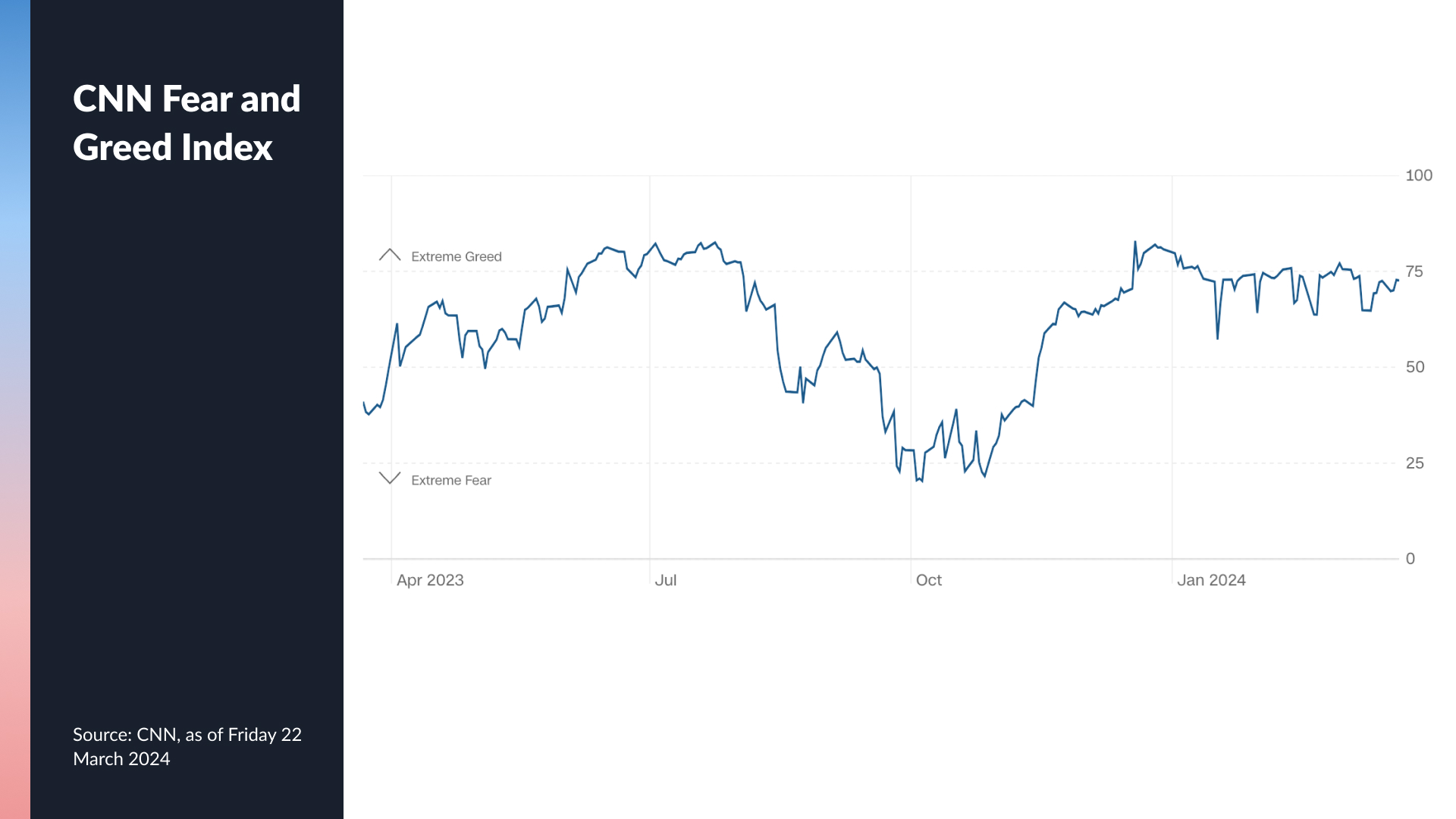
Lukasz - SIGNAL - The market can get excessively positive and negative from time to time. But this is where, in his view, a great contrarian selling and buying opportunity (respectively) applies.
Tom - NOISE - The fact that stocks and Bitcoin continue to hit record high after record high does not change his view on how the bond market is priced specifically. He thinks that excessive sentiment will become a signal only when wealth effects come into play - that is if asset prices go up and it leads to an increase in real economic growth and spending. He thinks that is not occurring in Australia at the moment.
Diana - NOISE - The sentiment indicators have been at very elevated levels for some time. It can be a sign occasionally if conditions demonstrate that markets are "overbought" but at this point, there are a few too many positives moving forward.
Topic 3: Jamie Dimon's stagflation call
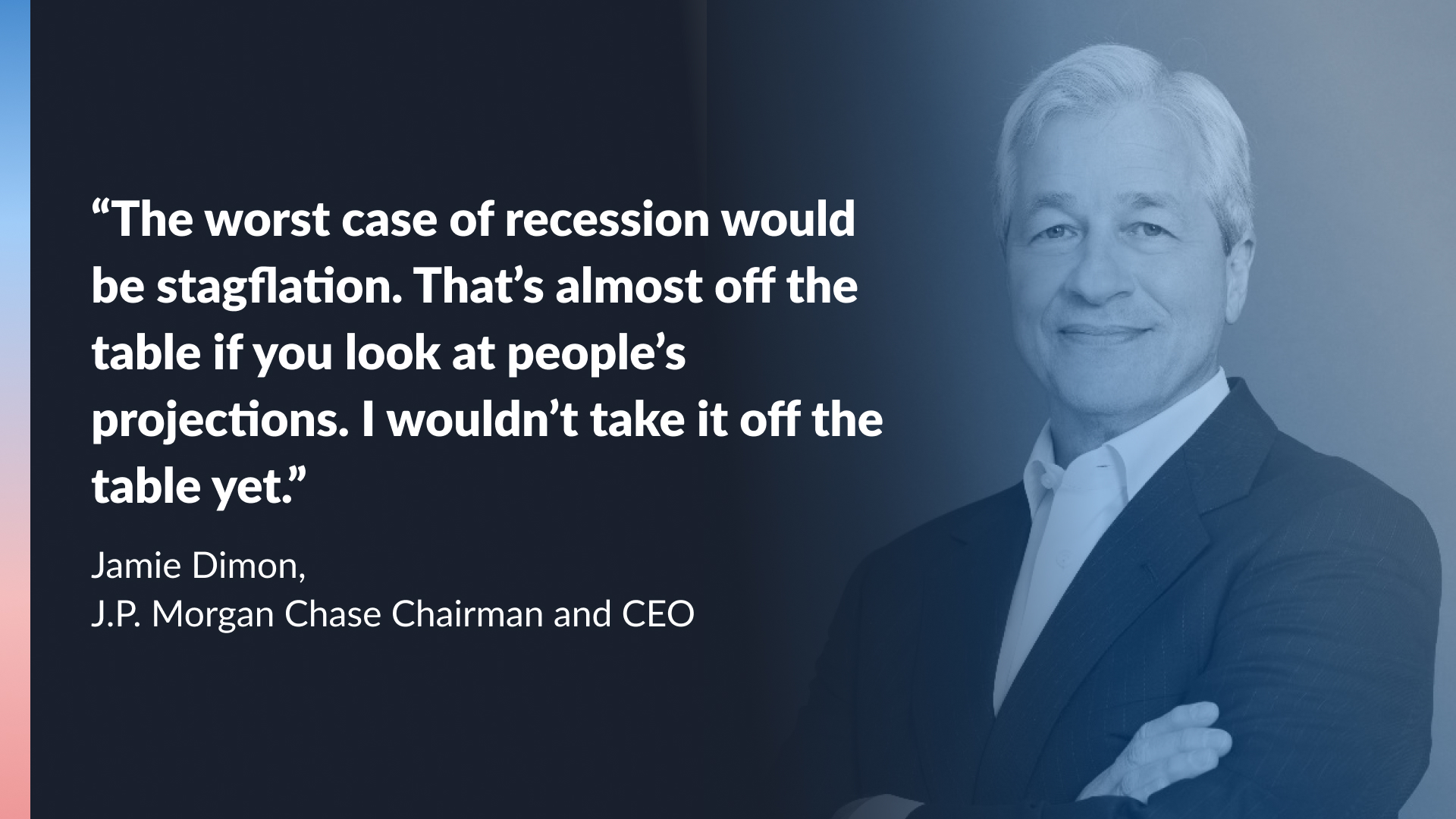
Tom - SIGNAL - It is, in Tom's view, all about the distribution of risks. What we need to ask, as investors, is to ascertain how often these predictions ever become reality. The tail risk of "higher for longer" rates is still discounted in markets. Tom also makes the point that the idea of a global recession has become "unfashionable" - and while he is not calling for a recession himself, you can't discount the possibility.
Diana - NOISE - A stagflationary environment, which implies a 4-5% inflation rate, just does not exist anymore in the major economies. The forward-looking signals for inflation still suggest further falls.
Lukasz - NOISE - A stagflationary environment would be Fidelity's "lowest case" scenario. While there are pockets of stickiness, the overall trend is down.
How are these investors allocating client cash over the next 12 months?
Lukasz - The Fidelity team are long risk-on positions (overweight US equities, particularly in the mid-cap space). They are more cautious on fixed income positioning and in credit markets, they prefer quality sectors like the financials and want to stay away from cyclical investments.
Tom - In Australian fixed income markets, 3 is the magic number (3% inflation is within reach, a 3% cash rate would be the end game, and a 3-year yield could be 3% by year's end). The preference is for bonds at the front end of the curve (short duration). Overseas, New Zealand markets look attractive given how quickly higher rates have impacted the Kiwi economy.
Diana - The AMP team has shifted towards risk in the last month, reducing cash allocations and adding more to its global equity allocation.
Final Frame: The taller the Federal Reserve Chair, the higher rates climb!
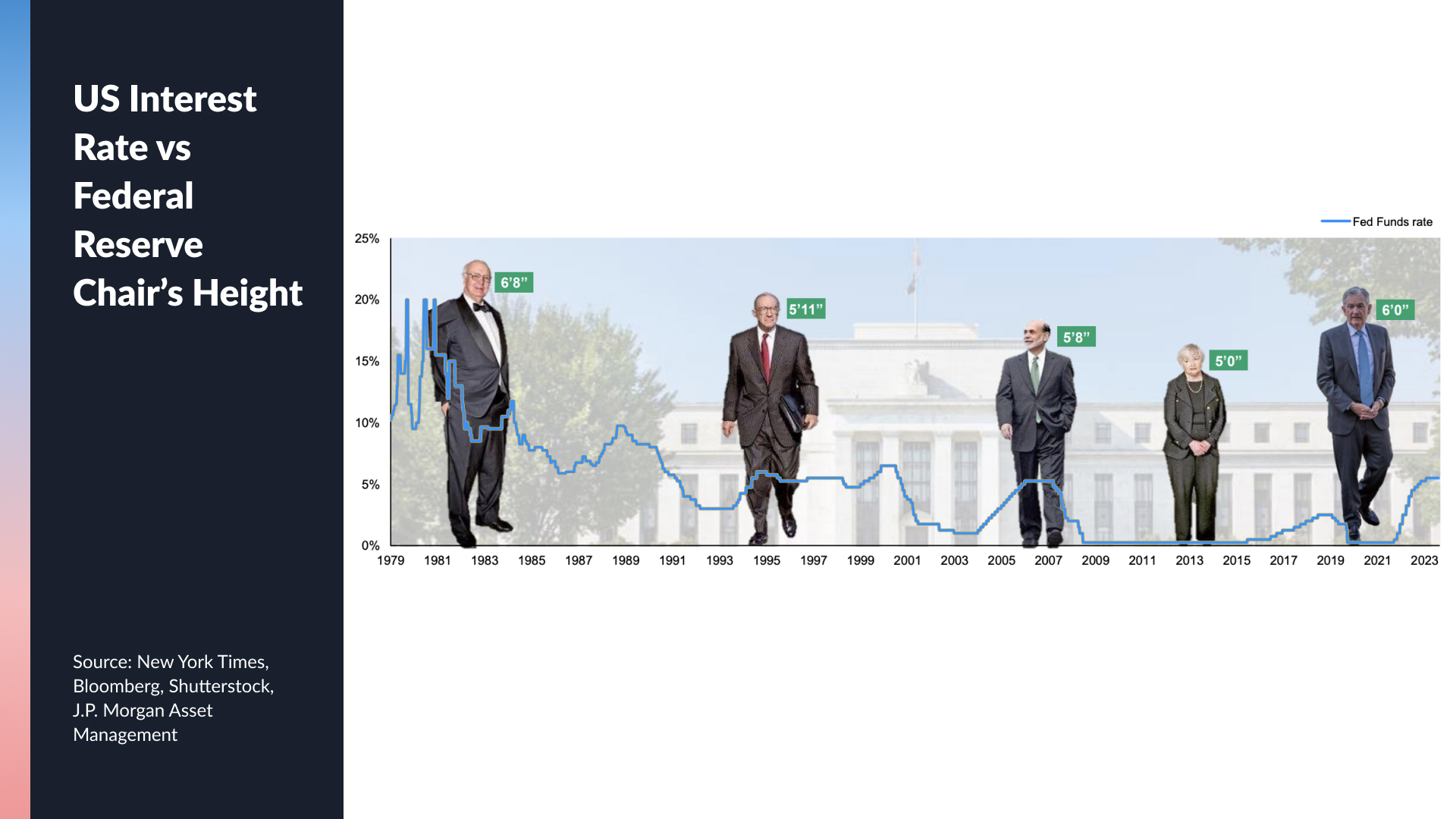
Signal or Noise returns on April 15 with our annual episode dedicated to the intersection of macro and commodities.
4 topics
2 contributors mentioned

